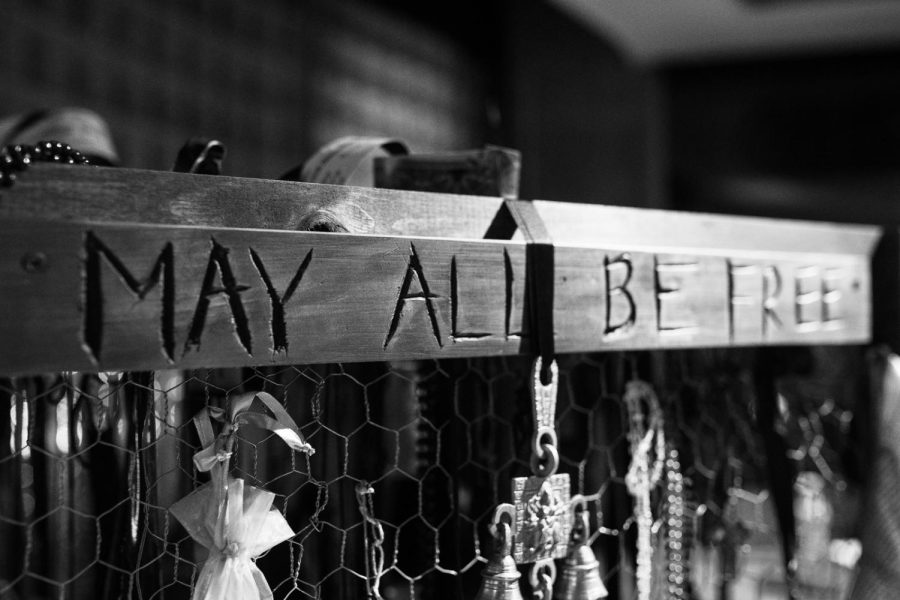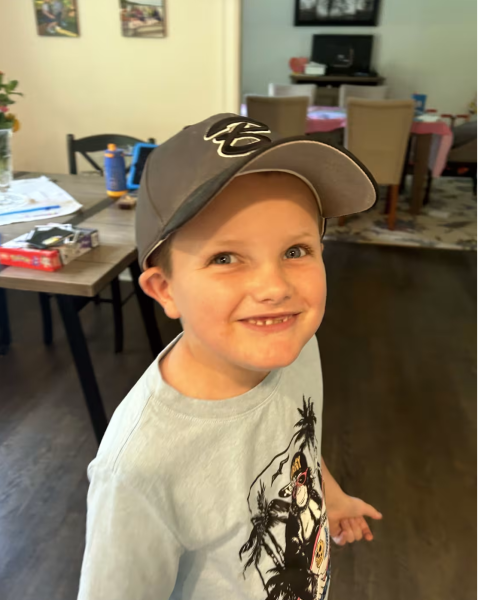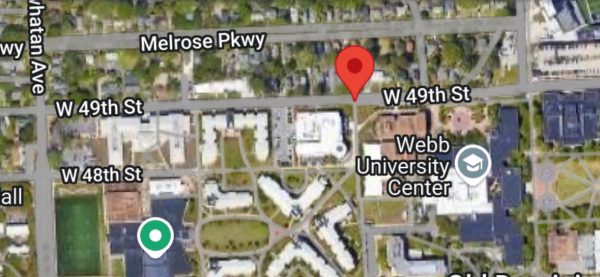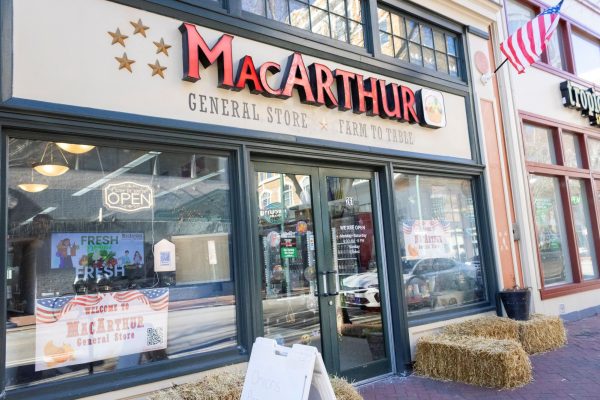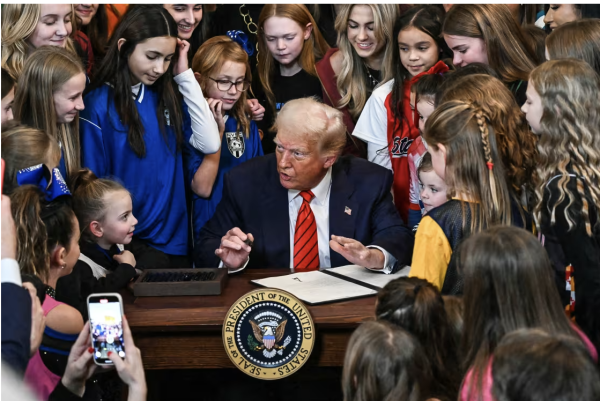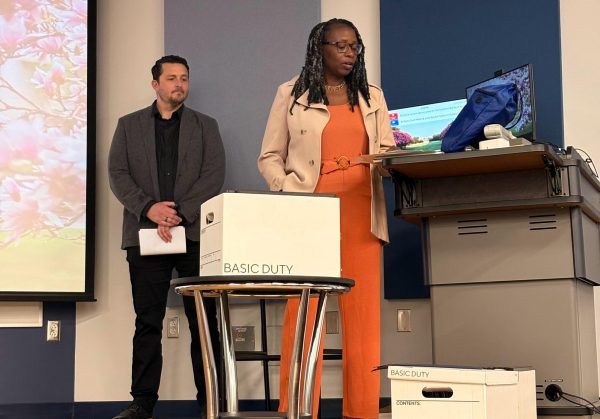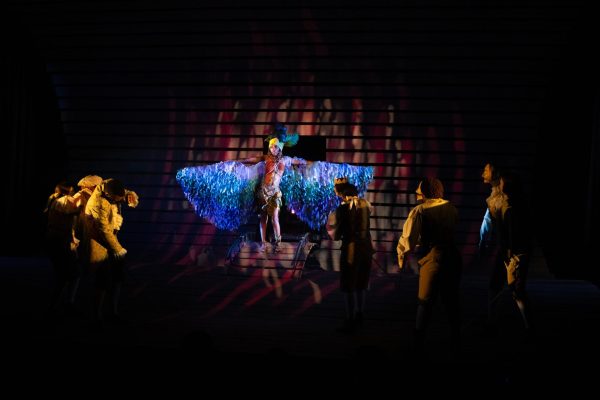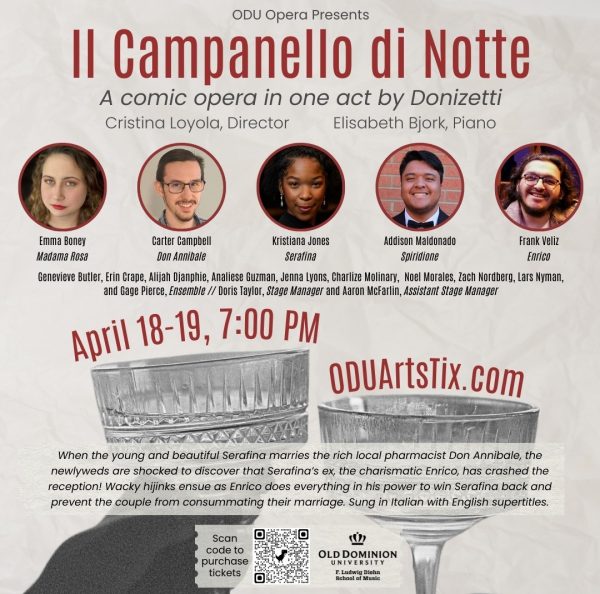Human Trafficking Awareness Event Features Centerpiece by ODU Student
Old Dominion University’s College of Art and Letters hosted “Hear Their Voices: A Human Trafficking Awareness Event” on Wednesday, Jan. 26.
According to the National Human Trafficking Hotline (NHTH), Virginia had 119 human trafficking cases in 2020. From 2007 until 2020, there have been a total of 1,546 cases pursued by law enforcement within the state. The past five years alone have seen 574 cases of sex trafficking and 156 cases of labor trafficking.
For those in attendance, both in-person and on Zoom, the focal point of the event was a powerful piece of artwork by ODU student Kim McCoy. A wooden frame, about six feet high, graced the center of the spotlights. Clean edges, sanded and varnished till they shone with a dull reflection. Chicken wire composed the sides and top of the frame. Inside, undergarments drenched in an acrylic compound hung from the chicken wire. The acrylic preserved their shape, preventing the wind from rustling them. Prayer pieces from a diverse cast of religions dangled on the back wall of the box. Above them, etched into the wood were the words “May All Be Free”. Underneath this phrase hung crucifixes alongside prayer beads from India. Next to them was a personal piece, a gold figure of Durga, the Hindu warrior woman goddess with eight hands who preserves righteousness. McCoy personally contributed this piece, expressing her desire that the victims be uplifted through our support.
“Representing the victims and the perpetrators, with all of us on the outside as those being aware,” McCoy said of her desire to do more than just raise awareness, but produce action. This is why the garments, all contributed by people affected by human trafficking, did not move in the wind. The chicken wire, something meant for animals, was there to keep them in, to prevent their movement, to restrict their choice.
The DHS defines human trafficking as “the use of force, fraud, or coercion to obtain some type of labor or commercial sex act”. The victims of human trafficking are not necessarily held by physcial force, as perpetrators typically use psychological or emotional manipulation to maintain control.
Originally an art piece for a class at ODU, McCoy said it turned into something bigger than she had ever imagined. She got her father involved, who was skilled in cabinetry. He fashioned the box, then shipped it to her. After her initial completion of the work, it fell out of the back of her pickup truck on the highway. Landing in the road, it tumbled and was smashed to pieces by oncoming traffic. Incredibly enough, the back of the box remained virtually untouched. The inscription and all of the prayer pieces, numbering at least 20, were unharmed. McCoy, with the help of her father, rebuilt the entire work using the original back part of the box.
McCoy remarked on this, saying “it was almost as if to represent all the victims who were being held back, but we didn’t give up”. Following McCoy’s heartfelt story about the journey of the centerpiece, Dr. Tonya Shell, under her stage name Poettik Justice, delivered her signature spoken word performance. One line resonated throughout the audience: “Even though I am not made of stone, I still rock.”
McCoy held the microphone for Shell as she spoke. It was a moment that truly captured the evening’s purpose.
The focus of the event was on raising awareness, and fostering the community to do so. Shell urged the audience: “If you see something, say something”. Human trafficking is not something that one person alone can stop and spreading awareness is key. This is needed in the fight for human rights, basic freedoms that need no introduction. This is concerning freedom of choice, the freedom over people’s individual lives and actions. Those who become victims of human trafficking have the most basic rights stolen from them. For those that aren’t rescued or saved, these rights — rights believed to be inalienable, are stripped from them.
For those who want to give monetarily, they can text “traffickingodu” to 50155.
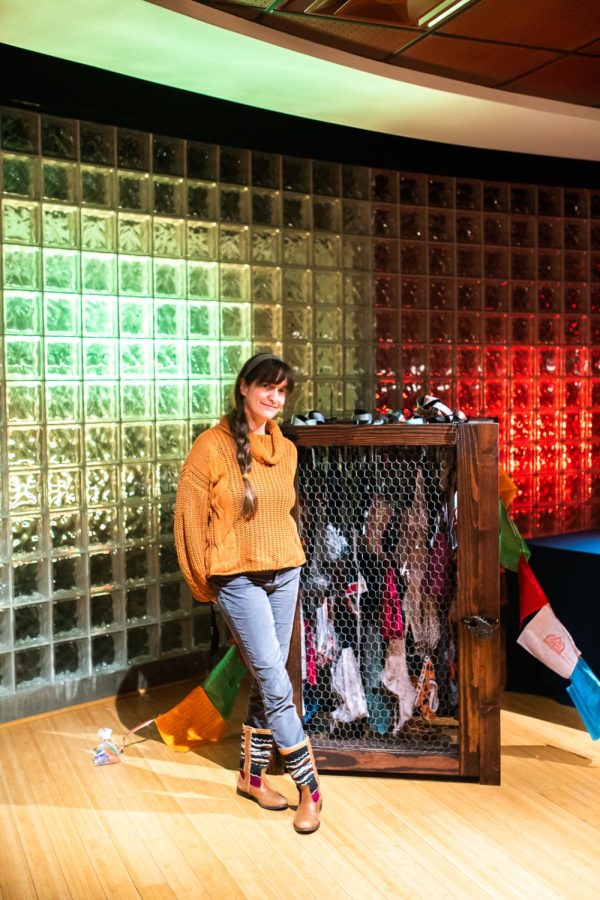
If you believe someone is a victim of human trafficking, you can call the 24-hour, toll-free hotlines:
National Human Trafficking Hotline 1 (888) 373-7888
Adult Protective Services in Virginia (888) 832-3858
Child Protective Services in Virginia (800) 552-7096
Kim McCoy’s piece, “Hear Their Voices”, will be displayed in the Barry Art rotunda until the end of the month. If you wish to follow her on Instagram, you may do so at @kimmcoyart.
At the event’s conclusion, McCoy gave her final thoughts:
“I think it’s really about caring. That if we’re made aware of something, then we can begin to care for it. And when we care for that, we might actually wonder how I can make a difference. To any survivors or victims of human trafficking, to know that people are looking out for them and wanting them to be ok. Like the back of the piece says ‘May All Be Free’ – that is truly my wish.”
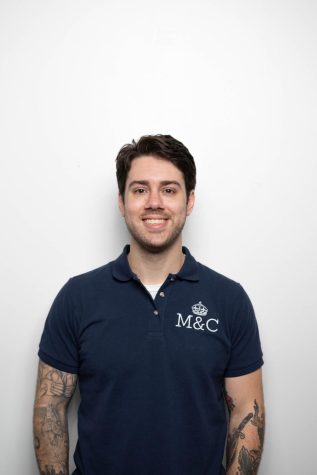
Jonathan Fernandes is majoring in English with a focus on creative writing and journalism. At this time, he serves as the news editor for the Mace and...
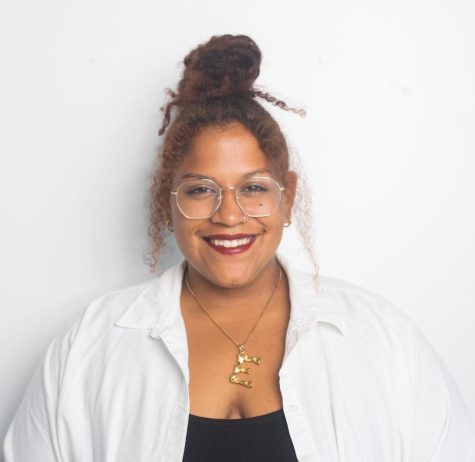
Elena Harris is a speech pathology major and photography minor graduating in the spring of 2023. Outside of the Mace and Crown, Elena enjoys the ODU experience...


